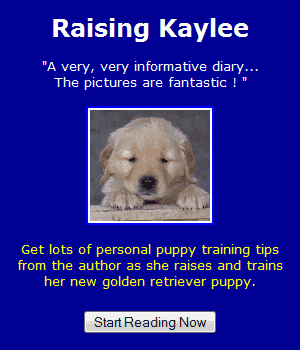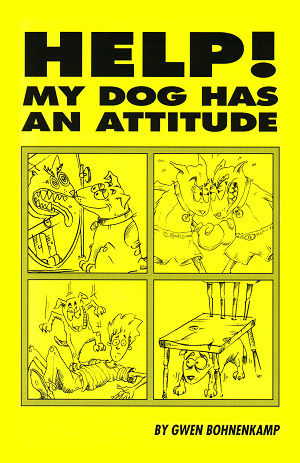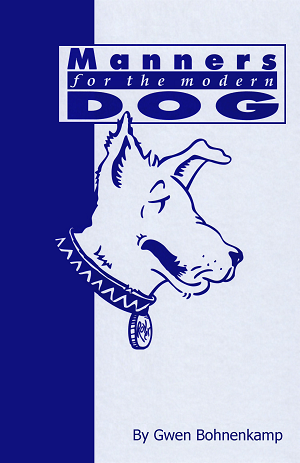Puppy Socialization is part of training a pup

Socialization and puppy training are of utmost importance as puppyhood is the most important and critical time in your dog's development. What you do and do not do right now will affect your dog's behavior forever. A properly socialized puppy is well adjusted and makes a good companion. It is neither frightened by nor aggressive towards anyone or anything it would normally meet in day to day living.
An un-socialized dog is untrustworthy and an unwanted liability. They often become fear-biters. Often they like to fight with other dogs. They are difficult to train and are generally unpleasant to be around. Unsocialized dogs cannot adapt to new situations and a simple routine visit to the vet is a nightmare not only for the dog itself, but for everyone involved. Don't let this happen to you and your dog. Start socializing your new puppy NOW!
The Cornell University College of Veterinary Medicine agrees that the socialization period lasts up to about 12 weeks (3 months) of age. However, at 12 weeks, the puppy must continue socialization to refine its social skills. Socialization most easily occurs before the puppy is 3 months old. Any later than that and it becomes an excruciatingly difficult and time-consuming process that very few owners have the time, energy, money or patience to cope with.
Socialization Do's
Make sure that each of the following events are pleasant and non-threatening. If your puppy's first experience with something is painful and frightening, you will be defeating your purpose. In fact, you will be creating a phobia that will often last a lifetime. It's better to go too slow and assure your puppy is not frightened or injured than to rush and force your pup to meet new things and people.
* Invite friends over to meet your pup. Include men, women, youngsters, oldsters, different ethnic backgrounds, etc.
* Invite friendly, healthy, vaccinated dogs, puppies and even cats to your home to meet and play with your new puppy. Take your puppy to the homes of these pets, preferably with dog-friendly cats.
* Carry your pup to shopping centers, parks, school playgrounds, etc; places where there are crowds of people and plenty of activity.
* Take your puppy for short, frequent rides in the car. Stop the car and let your puppy watch the world go by through the window.
* Introduce your puppy to umbrellas, bags, boxes, the vacuum cleaner, etc. Encourage your puppy to explore and investigate his environment.
* Get your puppy accustomed to seeing different and unfamiliar objects by creating your own. Set a chair upside down. Lay the trash can (empty) on its side, set up the ironing board right-side up one day and upside down the next day. . . you get the idea.
* Introduce your puppy to new and various sounds. Loud, obnoxious sounds should be introduced from a distance and gradually brought closer.
* Accustom your puppy to being brushed, bathed, inspected, having its nails clipped, teeth and ears cleaned and all the routines of grooming and physical examination.
* Introduce your puppy to stairs, his own collar and leash. Introduce anything and everything you want your puppy to be comfortable with and around.
Socialization Don'ts
* Do not put your puppy on the ground where unknown animals have access. This is where your puppy can pick up diseases. Wait until your puppy's shots are completed. Do not let your pup socialize with dogs that appear sick or dogs that you don't know, that may not be vaccinated.
* Do not reward fearful behavior. In a well meaning attempt to sooth, encourage or calm the puppy when it appears frightened, we often unintentionally reward the behavior. It's normal for the puppy to show some signs of apprehension when confronting anything new and different.
* Do not allow the experience to be harmful, painful or excessively frightening. This can cause lifetime phobias in your dog.
* Do not force or rush your puppy. Let your puppy take things at his own pace. Your job is to provide the opportunity.
* Do not do too much at one time. Young puppies need a lot of sleep and tire quickly. It is much more productive to have frequent and very brief exposures than occasional prolonged exposures.
* DO NOT WAIT!! Every day that goes by is an opportunity of a lifetime that is lost forever. You can never get these days back. If socialization does not happen now, it never will.
Puppy Socialization is part of training a pup
Recommend this webpage... share with friends !These articles may also be of interest...
^ Top of Page


